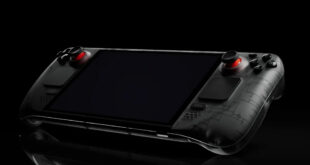
Earlier this month, we covered an upcoming FCC meeting in which the federal agency planned to vote on redefining broadband coverage standards in the United States. Under the FCC’s proposed rules, wireless carriers with much lower speeds and vastly higher prices would’ve also counted as broadband providers for the purpose of deciding whether or not a rural or urban area was adequately served. The plan was heavily criticized for attempting to combine two different types of access that aren’t comparable and the FCC is apparently going to drop the effort.
FCC Chairman Ajit Pai released a fact sheet concerning the FCC’s February meeting. It reads, in part (all emphasis original):
Mobile services are not full substitutes for fixed services—there are salient differences between the two technologies.
Both fixed and mobile services can enable access to information, entertainment, and employment options, but there are salient differences between the two. Beyond the most obvious distinction that mobile services permit user mobility, there are clear variations in consumer preferences and demands for fixed and mobile services.
The fact sheet also notes that the FCC will maintain the 25/3 standard for wireline (also known as fixed) broadband and would continue to monitor the deployment of said service.
Hammering the Investment Myth
In a statement released alongside the fact sheet, FCC Chairperson Ajit Pai continues to lie about the impact of net neutrality on the state of broadband investment in the United States. Pai writes:
The draft report indicates that the pace of both fixed and mobile broadband deployment declined dramatically in the two years following the prior Commission’s Title II Order. However, the draft report also discussed how, over the course of the past year, the current Commission has taken steps to reduce barriers to infrastructure investment and promote competition in the broadband marketplace.
This is untrue. A year ago, the cable lobbying industry NCTA sent out a self-congratulatory article, proclaiming the rapid increase in US broadband speeds, while congratulating the industry for a massive 90 percent decrease in the cost-per-megabit of service over the past decade.
Internet speeds continue to rise all while the cost per megabit has gone DOWN 90 percent over the last ten years. https://t.co/QbSx7F7YlR pic.twitter.com/nU77EM0KOb
— NCTA – Internet TV (@NCTAitv) June 5, 2017
A major report from Free Press scoured quarterly reports, investment records, executive statements, and press releases from all major US ISPs from 2015 to 2017 and found zero incidents of any ISP attributing a network investment change to net neutrality.

In 16/24 cases, US ISPS increased network spending. Total spending rose by 5.3 percent in 2015-2016 compared with 2013-2014. The ISPs that cut spending tend to be smaller facilities — Comcast increased its spend by 26.6 percent, Charter + TWC increased spending by 15 percent, and Verizon increased 3.1 percent. Only ATT slightly reduced its network spending, and only by 0.6 percent.
The Free Press report steps through the various arguments for how net neutrality has supposedly led to lower investment rates and demolishes them with a combination of publicly available data and public statements from the companies themselves. I realize there are readers that will see bias in being willing to declare someone is deliberately spreading falsehoods. But that’s what this is. All available evidence suggests that wireless ISPs and wireline providers both engage in cyclical periods of investment. This information was included in the FCC report in 2013 (Pai was appointed to the FCC in 2012), as detailed by Ars Technica.
The arguments used as justification for dismantling net neutrality were shoddy, bad-faith excuses peddled by those smart enough to know it. We’re glad the FCC isn’t throwing rural communities under a bus by reclassifying mobile broadband as wireline-equivalent, but that doesn’t mean the organization’s other claims are credible.
 #Bizwhiznetwork.com Innovation ΛI |Technology News
#Bizwhiznetwork.com Innovation ΛI |Technology News



